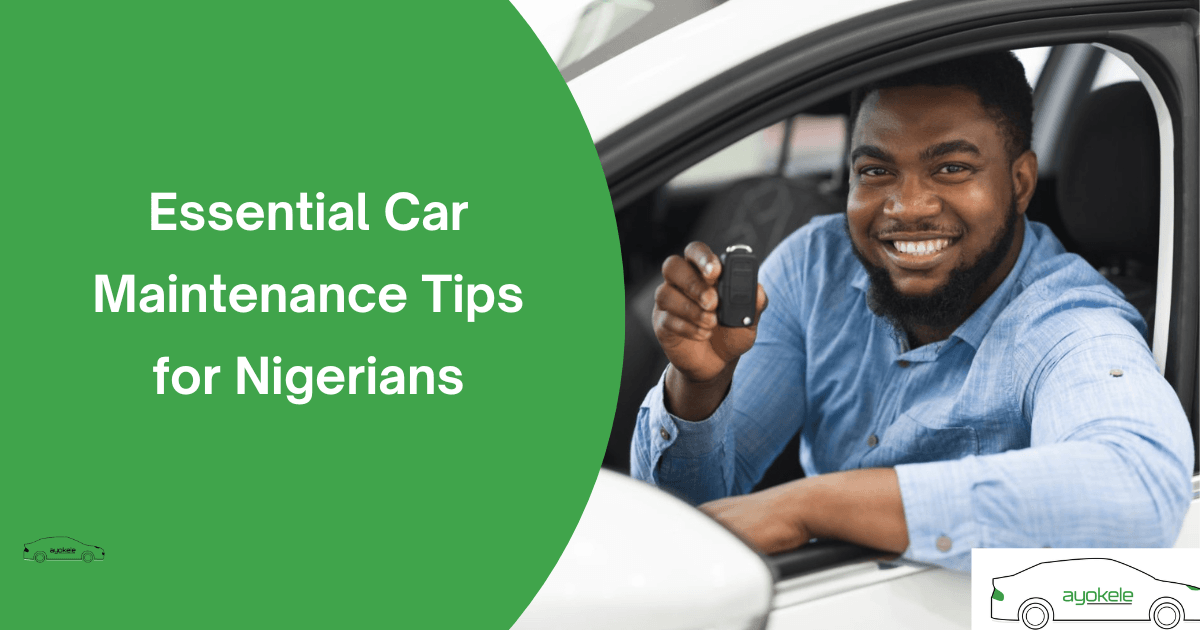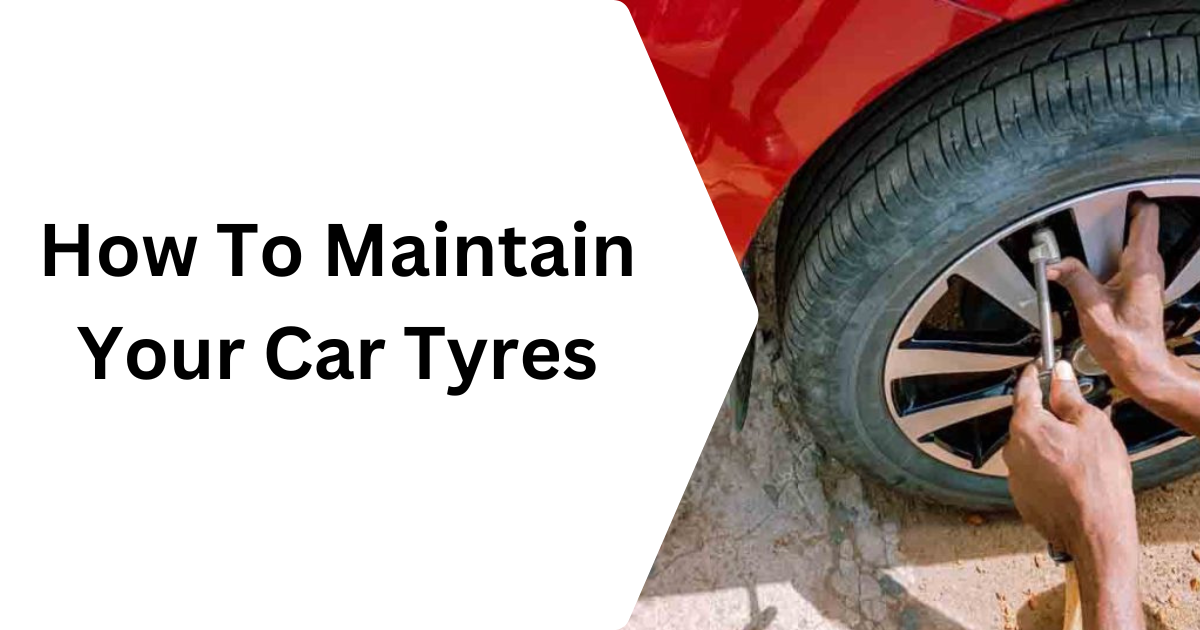In 2025, keeping your car in good condition starts with following essential car maintenance tips. With tougher road conditions and the rise of newer car technologies, regular maintenance is more important than ever. It helps prevent breakdowns, saves money on repairs, and ensures safer driving. This article is packed with useful advice tailored to Nigerian drivers. Whether you drive on tarred roads or not, these tips will help you care for your car and keep it performing at its best.
Tips for Preventive Maintenance
1. Check and Change Your Engine Oil Regularly
Engine oil lubricates the moving parts of your car’s engine, reducing friction and preventing overheating. Over time, oil becomes dirty and less effective, which can lead to engine damage. In our hot climate and stop-and-go traffic, it’s crucial to check your oil levels regularly using the dipstick. Refill if it’s low and change the oil as recommended by your car’s manufacturer, typically every 5,000 to 7,000 kilometers.
Using the correct type of oil is equally important. Your car manual will specify the right oil for your engine, and sticking to these recommendations helps ensure optimal performance. Regular oil changes not only keep your engine running smoothly but also prevent costly repairs down the line.
2. Monitor Tire Pressure and Condition
Tires are one of the most critical components for safe driving, and maintaining the right pressure improves fuel efficiency and prevents blowouts. Check your tire pressure weekly using a reliable gauge and adjust it to match the manufacturer’s recommendations. Underinflated tires cause increased rolling resistance, making your car consume more fuel and wear out the tires faster.
Inspect the tread depth regularly as well, especially before long trips or during the rainy season. Bald or worn-out tires reduce traction and increase the risk of accidents on wet roads. Rotating your tires every 5,000 kilometers also ensures even wear and prolongs their lifespan.
3. Inspect and Replace Air Filters
Air filters prevent dirt and debris from entering your car’s engine, ensuring efficient combustion. In Nigeria, where dust levels are often high, air filters can get clogged more quickly. A dirty air filter reduces engine performance, decreases fuel efficiency, and increases emissions.
Clean or replace your air filters every 12,000 to 15,000 kilometers, or more frequently if you often drive on dusty roads. Keeping the air filter in good condition improves your engine’s health and ensures smoother performance, saving you money on fuel and repairs.
4. Test Your Battery Regularly
A weak or failing battery can leave you stranded, so preventive maintenance is essential. Check your battery terminals for corrosion and clean them if needed. Make sure the battery is securely mounted and the connections are tight. Use a multimeter to test the battery’s voltage; a healthy battery should read around 12.6 volts when the engine is off.
In Nigeria’s hot climate, batteries tend to wear out faster, so it’s wise to replace them every 2-3 years or at the first sign of trouble. Proper battery maintenance ensures reliable starts and prevents unexpected breakdowns.
5. Pay Attention to Warning Lights
Dashboard warning lights are your car’s way of communicating potential problems. Common indicators include the check engine light, oil pressure light, and battery warning light. Ignoring these warnings can lead to bigger and costlier issues.
As soon as a warning light appears, consult your car’s manual to understand the issue and address it promptly. If needed, visit a mechanic for diagnostics. Taking quick action when warning lights appear is a simple but effective preventive measure that can save you time and money.
Advanced Preventive Maintenance Tips
1. Maintain the Cooling System
The cooling system is crucial for preventing your engine from overheating, especially in Nigeria’s high temperatures. Regularly check the coolant levels and ensure the mixture of antifreeze and water is balanced as per your car’s manual. A low coolant level can cause the engine to overheat, leading to severe damage. Look out for leaks in the radiator, hoses, or water pump, as these can quickly deplete the coolant and cause problems.
It’s also important to flush the cooling system every 2-3 years to remove old coolant and any buildup of rust or debris. Replacing the coolant with a fresh mixture keeps the system running efficiently and protects your engine. Regular inspections of the cooling system help you avoid costly repairs and ensure your car remains reliable.
2. Inspect Belts and Hoses
Belts and hoses are often overlooked but play a key role in keeping your car running. The serpentine belt drives critical components like the alternator, power steering pump, and air conditioning compressor. Over time, belts can wear out, crack, or fray, leading to failures that could leave you stranded. Inspect the belt for any visible signs of damage and replace it if necessary, usually every 60,000 to 100,000 kilometers.
Hoses, on the other hand, transport fluids like coolant and brake fluid. Look for soft spots, cracks, or bulges in the hoses, as these indicate wear and potential leaks. Replacing faulty hoses before they fail ensures smooth engine operation and prevents unexpected breakdowns on the road.
3. Flush and Refill Brake Fluid
Brake fluid is essential for the proper functioning of your braking system, but it degrades over time as it absorbs moisture. This can reduce braking efficiency and cause corrosion within the system. Flushing and refilling the brake fluid every two years or as recommended by your car manufacturer ensures your brakes remain responsive and effective.
When performing a brake fluid change, ensure you use the type specified in your car’s manual (e.g., DOT 3, DOT 4). Avoid mixing different types of brake fluid, as this can damage the braking system. Regular brake fluid maintenance not only improves safety but also extends the life of your car’s braking components.
4. Clean Your Fuel System
The fuel system delivers gasoline or diesel to your engine, and over time, deposits can build up in the fuel injectors or carburetor, reducing performance. Cleaning the fuel system helps remove these deposits, allowing for smoother fuel flow and better combustion. Adding a fuel injector cleaner to your tank every few thousand kilometers can help keep the system clean.
For more intensive cleaning, you may need a professional mechanic to service the fuel injectors or perform a fuel system flush. Regular maintenance of your fuel system improves fuel efficiency, reduces emissions, and ensures your engine performs at its best.
5. Update Software in Modern Cars
Modern cars are equipped with advanced digital systems that require periodic software updates. These updates can enhance performance, improve fuel efficiency, and even add new features like updated navigation maps or improved safety settings. Most car manufacturers notify owners when updates are available, and these can often be done at authorized service centers.
Neglecting software updates may cause your car to miss out on critical improvements or even malfunction. For example, some updates address issues with the engine control unit (ECU), which manages fuel injection and emissions. Keeping your car’s software up to date ensures it runs smoothly and safely, especially as vehicles become more reliant on technology.
Proactive Maintenance Tips for Better Car Performance
1. Rotate Your Tires Regularly
Tire rotation is an essential practice to ensure even wear across all four tires, which prolongs their lifespan and improves overall performance. In most vehicles, the front tires wear out faster than the rear ones due to their involvement in steering and braking. Rotating your tires every 5,000 to 7,000 kilometers helps distribute the wear evenly and prevents the need for premature replacements.
The type of rotation pattern—such as front-to-back or cross-pattern—depends on your car’s drivetrain (e.g., front-wheel drive, rear-wheel drive, or all-wheel drive). Check your owner’s manual for the recommended pattern. Regular tire rotation also enhances traction, especially during Nigeria’s rainy season, reducing the risk of accidents.
2. Replace Worn-Out Windshield Wipers
Windshield wipers are crucial for visibility during heavy rain or dusty conditions, yet they are often neglected. Over time, the rubber blades can crack or lose their flexibility, leading to streaks and reduced effectiveness. Inspect your wipers every few months for signs of wear and replace them at least once a year or as needed.
High-quality wipers ensure a clear view, which is especially important when driving on busy or poorly lit Nigerian roads. Don’t wait until heavy rainfall catches you off guard; maintaining your wipers is a simple yet effective way to improve safety.
3. Keep Your Exhaust System in Check
The exhaust system is responsible for directing harmful gases away from the engine and the cabin while improving fuel efficiency. Over time, rust, leaks, or blockages can occur, reducing performance and increasing emissions. Inspect your exhaust system for unusual noises, such as loud rumbling or hissing, which may indicate a problem.
If you notice any signs of damage or reduced efficiency, have a professional mechanic examine the system. Regular checks ensure the exhaust is functioning properly, keeping your car environmentally friendly and improving overall engine performance.
4. Ensure Proper Alignment and Balancing
Misaligned wheels can cause uneven tire wear, reduce fuel efficiency, and make steering difficult. If your car pulls to one side or the steering wheel vibrates, it’s time to check the alignment and balance. Proper alignment ensures all wheels point in the right direction, while balancing eliminates vibration caused by uneven weight distribution in the tires.
Schedule an alignment and balancing service every 10,000 kilometers or whenever you notice handling issues. This not only improves driving comfort but also extends the life of your tires and suspension components.
5. Keep Your Car’s Exterior Protected
The exterior of your car faces constant exposure to harsh elements like heat, dust, and rain, which can damage the paint and cause rust. Washing your car regularly removes dirt and debris that can scratch the surface. Applying wax every few months creates a protective layer, keeping your car’s paint job shiny and resistant to wear.
In Nigeria’s humid and rainy regions, rust-proofing treatments are particularly helpful for preventing corrosion. Taking care of your car’s exterior not only enhances its appearance but also preserves its resale value over time.
FAQs
1. How often should I service my car in Nigeria?
You should service your car every 5,000 to 7,000 kilometers or every 3 to 6 months, depending on your car’s make and model. Always follow the manufacturer’s recommended schedule for optimal performance.
2. What are the key signs my car needs maintenance?
Common signs include dashboard warning lights, unusual noises, reduced fuel efficiency, difficulty starting, or uneven tire wear. Addressing these issues promptly helps avoid costly repairs.
3. Why is tire rotation important for Nigerian roads?
Tire rotation ensures even wear, improves traction, and prolongs tire lifespan. This is especially crucial on Nigeria’s rough and uneven roads, where tires are subjected to more stress.
4. How can I prevent engine overheating in Nigeria’s hot climate?
Regularly check and maintain coolant levels, inspect the radiator and hoses for leaks, and clean debris from the radiator. Preventive care ensures your cooling system functions effectively.
5. Is it necessary to update my car’s software in 2025?
Yes, modern cars with digital systems often require software updates to improve performance, fix bugs, and enhance safety features. Check with your car manufacturer for update notifications.
Consistent car maintenance ensures safety, reliability, and longevity, even on challenging roads. Adopt these tips to keep your car running smoothly and save on repair costs in 2025.




